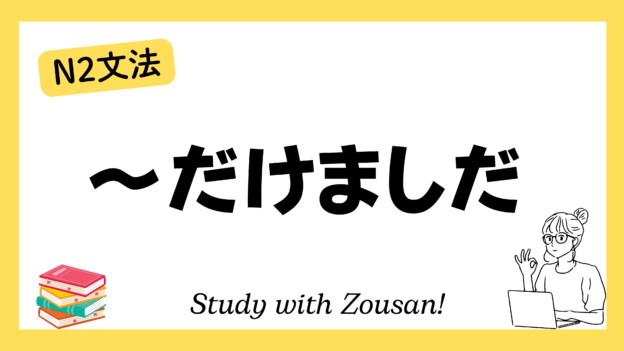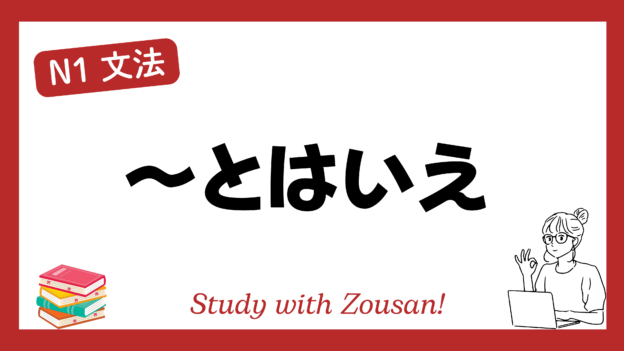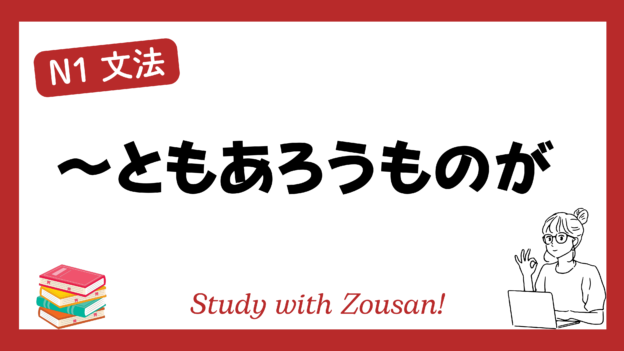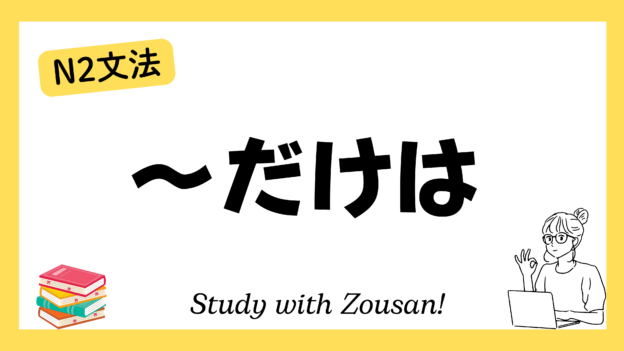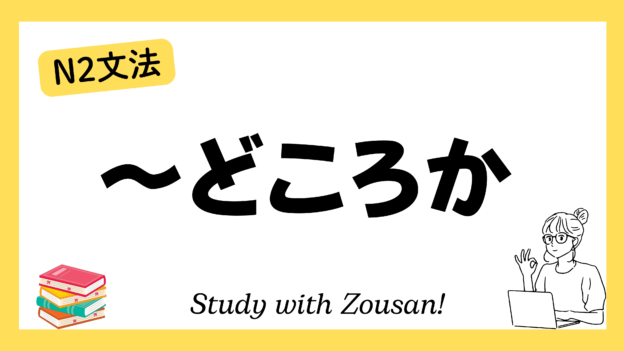N2文法:~だけましだ
Meaning: “At least…” / “It’s better than…” / “It’s not as bad as…”
The structure “~だけましだ” is used to express that, even though the situation isn’t ideal, there’s still something positive or a lesser negative aspect compared to a worse case. The speaker uses this structure to console themselves or others, emphasizing that “at least it’s better than a worse outcome.”
※Note:
- “~だけましだ” is used in contexts where the speaker wants to emphasize something slightly better, even if the overall situation is not ideal.
- This structure often carries a consoling or mitigating tone to soften the difficulties of the current situation.
Structure:
| Verb (casual) | + だけましだ |
| Noun + である | |
| な-adjective + な | |
| い-adjective |
Example:
-
-
-
🌟 交通事故で車は壊れたが、怪我がなかっただけましだ。
(こうつう じこ で くるま は こわれた が、けが が なかった だけ まし だ)
My car was damaged in a traffic accident, but at least I wasn’t injured. -
🌟 試験は不合格だったが、チャレンジできただけましだ。
(しけん は ふごうかく だった が、チャレンジ できた だけ まし だ)
I failed the exam, but at least I got the chance to try. -
🌟 雨は降っているけれど、風が強くないだけましだ。
(あめ は ふって いる けれど、かぜ が つよく ない だけ まし だ)
It’s raining, but at least the wind isn’t strong. -
🌟 給料が下がったが、仕事が続けられるだけましだ。
(きゅうりょう が さがった が、しごと が つづけられる だけ まし だ)
My salary decreased, but at least I can keep my job. -
🌟 失敗したが、大きな損失が出なかっただけましだ。
(しっぱい した が、おおきな そんしつ が でなかった だけ まし だ)
I failed, but at least there were no big losses. -
🌟 病気になったが、入院しなくてもいいだけましだ。
(びょうき に なった が、にゅういん しなくても いい だけ まし だ)
I got sick, but at least I don’t have to be hospitalized. -
🌟 友達が来れなかったけど、電話で話せただけましだ。
(ともだち が これなかった けど、でんわ で はなせた だけ まし だ)
My friend couldn’t come, but at least we could talk on the phone. -
🌟 寒いけれど、雪が積もっていないだけましだ。
(さむい けれど、ゆき が つもっていない だけ まし だ)
It’s cold, but at least there’s no snow piled up. -
🌟 電車が遅れているが、動いているだけましだ。
(でんしゃ が おくれている が、うごいている だけ まし だ)
The train is delayed, but at least it’s running. -
🌟 家賃は高いが、このエリアで住めるだけましだ。
(やちん は たかい が、この エリア で すめる だけ まし だ)
The rent is high, but at least I can live in this area.
-
-



